Remembering Theophilus Harding Willcocks (19-iv-1912 14-iv-2014)
An innovator in both mathematics and fairy chess.
Here is an excellent article on squaring.net
An article from matplus.net
Remembering Theophilus Harding Willcocks (19-iv-1912 14-iv-2014)
An innovator in both mathematics and fairy chess.
Here is an excellent article on squaring.net
An article from matplus.net
BCN remembers Mike Bent who passed away on Tuesday, December 28th 2004.
Charles Michael Bent was born on Thursday, 27th of November 1919 and in that year Charles was the fifth most popular boy’s name.
He was born in Portsmouth, Hampshire.
In 1939 he was living at 5, Ashburton Road, Gosport with his mother Eileen B. Bent (née Hill) and was a Sub Lieutenant in the Royal Navy.
He wrote “Best of Bent: Composer’s Choice of His Chess Endgame Studies, 1950-93” This was edited by TG Whitworth.

He died in Swindon on the 28th of December, 2004 having last resided in Hungerford, RG17. Whilst writing the Studies column for British Chess Magazine he resided at “Black Latches”, Inkpen, Newbury, Berkshire.
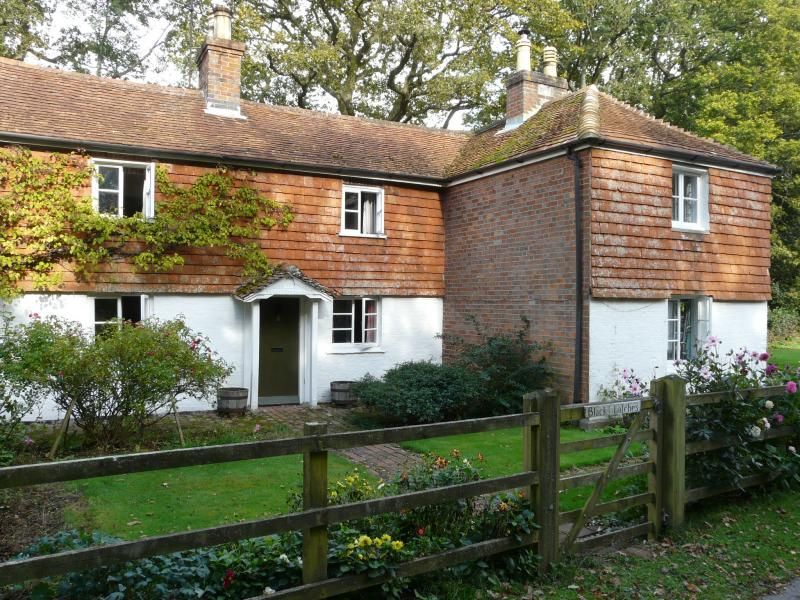
The C. M. Bent Memorial Composing Tourney was held in 2006-07.
From British Chess Magazine, Volume XCV (95, 1975), Number 1 (January), page 22 we have a charming introduction to CMB from the retiring editor of the Studies column, AJ Roycroft :
“A studies article without a diagram? Yes, and without an apology either. Instead this introduced my successor, Charles Michael Bent, who is as remarkable without the chessboard as he is with it. Now since, as at May 1974, he has composed the total, rarely exceeded by anyone, of 670 studies (of which only 375 have been published), and about 600 problems (one tenth published), his other achievements and activities, insofar as he can be persuaded to talk about them, are worth recounting.
Michael Bent has a passion for all-the-year-round tennis, and loves the country life. Walking and climbing, all-forms of do-it-yourself, word-play nabla/del, puzzles, conjuring and listening to music make the mixture extraordinarily rich. Yet if there was a single word to characterise him it would be simplicity (his choice), with (my addition) a strong and individual sense of humour.
Physically he is a lean, balding 54-year-old as fit as most men half his age. He played at Junior Wimbledon before the War and only three of four years back won the singles tennis championship of his half of Berkshire. He is a modest and delightful companion, and to visit him and his wife Viola, to whom he credits responsibility for the serenity of his condition and surroundings, is a relaxing pleasure I always look forward to in my own hustled and tense London-centered existence.
In his own words he was never really a player of chess at all, but first sight of problems (during the war) and endings (just after it) acted like fireworks on a dark night and lit an imagination which still lacks basic technical knowledge. So, artistic rather than ‘scientific’, have never knowingly composed a didactic study. Am told my ‘style’ is easily recognised. Am aware, but perfectly content, that I compose much that the expert will easily solve, in the hope that the less initiated may be entertained and as attracted as I was in the beginning.
There is a feast, including many surprises, in store for you and me, at the hands of your new chess-chef, ‘CMB of the BCM’.”
From British Chess Magazine, Volume 125 (2005), Number 2 (February), page 98 we have a brief obituary from John Beasley :
“Charles Michael Bent died just over a month after his 85th birthday. Mike Bent had long been Britain’s leading composer of endgame studies, he was a witty and entertaining writer on the subject (and on many others), and the pleasure he gave was rightly acknowledged by the granting in 2001 of one of the BCF President’s Awards for services to chess.
BCM published his first study in 1950 and one of his last 50 years later, and he was our endgame study columnist from January 1975 to March 1985. There will be a steady flow of quotations in Endgame Studies during the coming months. John Beasley”
The Studies column was taken over in April 1985 by Paul Lamford.
Here is his Wikipedia entry (complete with errors).
CMB won the BCF President’s Award in 2001.
From The Encyclopaedia of Chess (Robert Hale 1970 & 1976), Anne Sunnucks :
“Born on the 27th November 1919, Michael Bent has only one possible challenger, Harold Lommer, as the finest composer of endgame studies England has ever produced. Although up to October 1967, he had composed 546 problems and 320 studies, he now concentrates almost exclusively on studies. His 17 honoured studies include three 1st prizes. His partiality towards Knights is shown in the typical study selected here.
Michael Bent was educated at the Royal Naval College, Dartmouth, but had to leave the Navy because of chronic sea-sickness. He served in the Rifle Brigade in the Second World War and afterwards became a rubber plant in Johore, where he survived several terrorist attacks. How now lives with his wife in a Berkshire Village.
Apart from Chess, Michael Bent has other recreations, including wood carving, stamp collecting, composing crossword puzzles and butterfly collecting. His butterfly collection included 500 Malayan specimens. He is also a strong tennis player. Thirty-one years after playing at Wimbledon as a junior, he won the Newbury and District singles title in 1967.”
CM Bent
2nd Honorable Mention
New Statesmen 1964 Tourney Award,
5th March 1965
BCN remembers Mike Bent who passed away on Tuesday, December 28th 2004.
Charles Michael Bent was born on Thursday, 27th of November 1919 and in that year Charles was the fifth most popular boy’s name.
He was born in Portsmouth, Hampshire.
In 1939 he was living at 5, Ashburton Road, Gosport with his mother Eileen B. Bent (née Hill) and was a Sub Lieutenant in the Royal Navy.
He wrote “Best of Bent: Composer’s Choice of His Chess Endgame Studies, 1950-93” This was edited by TG Whitworth.

He died in Swindon on the 28th of December, 2004 having last resided in Hungerford, RG17. Whilst writing the Studies column for British Chess Magazine he resided at “Black Latches”, Inkpen, Newbury, Berkshire.

The C. M. Bent Memorial Composing Tourney was held in 2006-07.
From British Chess Magazine, Volume XCV (95, 1975), Number 1 (January), page 22 we have a charming introduction to CMB from the retiring editor of the Studies column, AJ Roycroft :
“A studies article without a diagram? Yes, and without an apology either. Instead this introduced my successor, Charles Michael Bent, who is as remarkable without the chessboard as he is with it. Now since, as at May 1974, he has composed the total, rarely exceeded by anyone, of 670 studies (of which only 375 have been published), and about 600 problems (one tenth published), his other achievements and activities, insofar as he can be persuaded to talk about them, are worth recounting.
Michael Bent has a passion for all-the-year-round tennis, and loves the country life. Walking and climbing, all-forms of do-it-yourself, word-play nabla/del, puzzles, conjuring and listening to music make the mixture extraordinarily rich. Yet if there was a single word to characterise him it would be simplicity (his choice), with (my addition) a strong and individual sense of humour.
Physically he is a lean, balding 54-year-old as fit as most men half his age. He played at Junior Wimbledon before the War and only three of four years back won the singles tennis championship of his half of Berkshire. He is a modest and delightful companion, and to visit him and his wife Viola, to whom he credits responsibility for the serenity of his condition and surroundings, is a relaxing pleasure I always look forward to in my own hustled and tense London-centered existence.
In his own words he was never really a player of chess at all, but first sight of problems (during the war) and endings (just after it) acted like fireworks on a dark night and lit an imagination which still lacks basic technical knowledge. So, artistic rather than ‘scientific’, have never knowingly composed a didactic study. Am told my ‘style’ is easily recognised. Am aware, but perfectly content, that I compose much that the expert will easily solve, in the hope that the less initiated may be entertained and as attracted as I was in the beginning.
There is a feast, including many surprises, in store for you and me, at the hands of your new chess-chef, ‘CMB of the BCM’.”
From British Chess Magazine, Volume 125 (2005), Number 2 (February), page 98 we have a brief obituary from John Beasley :
“Charles Michael Bent died just over a month after his 85th birthday. Mike Bent had long been Britain’s leading composer of endgame studies, he was a witty and entertaining writer on the subject (and on many others), and the pleasure he gave was rightly acknowledged by the granting in 2001 of one of the BCF President’s Awards for services to chess.
BCM published his first study in 1950 and one of his last 50 years later, and he was our endgame study columnist from January 1975 to March 1985. There will be a steady flow of quotations in Endgame Studies during the coming months. John Beasley”
The Studies column was taken over in April 1985 by Paul Lamford.
Here is his Wikipedia entry (complete with errors).
CMB won the BCF President’s Award in 2001.
From The Encyclopaedia of Chess (Robert Hale 1970 & 1976), Anne Sunnucks :
“Born on the 27th November 1919, Michael Bent has only one possible challenger, Harold Lommer, as the finest composer of endgame studies England has ever produced. Although up to October 1967, he had composed 546 problems and 320 studies, he now concentrates almost exclusively on studies. His 17 honoured studies include three 1st prizes. His partiality towards Knights is shown in the typical study selected here.
Michael Bent was educated at the Royal Naval College, Dartmouth, but had to leave the Navy because of chronic sea-sickness. He served in the Rifle Brigade in the Second World War and afterwards became a rubber plant in Johore, where he survived several terrorist attacks. How now lives with his wife in a Berkshire Village.
Apart from Chess, Michael Bent has other recreations, including wood carving, stamp collecting, composing crossword puzzles and butterfly collecting. His butterfly collection included 500 Malayan specimens. He is also a strong tennis player. Thirty-one years after playing at Wimbledon as a junior, he won the Newbury and District singles title in 1967.”
CM Bent
2nd Honorable Mention
New Statesmen 1964 Tourney Award,
5th March 1965
BCN remembers Mike Bent who passed away on Tuesday, December 28th 2004.
Charles Michael Bent was born on Thursday, 27th of November 1919 and in that year Charles was the fifth most popular boy’s name.
He was born in Portsmouth, Hampshire.
In 1939 he was living at 5, Ashburton Road, Gosport with his mother Eileen B. Bent (née Hill) and was a Sub Lieutenant in the Royal Navy.
He wrote “Best of Bent: Composer’s Choice of His Chess Endgame Studies, 1950-93” This was edited by TG Whitworth.

He died in Swindon on the 28th of December, 2004 having last resided in Hungerford, RG17. Whilst writing the Studies column for British Chess Magazine he resided at “Black Latches”, Inkpen, Newbury, Berkshire.

The C. M. Bent Memorial Composing Tourney was held in 2006-07.
From British Chess Magazine, Volume XCV (95, 1975), Number 1 (January), page 22 we have a charming introduction to CMB from the retiring editor of the Studies column, AJ Roycroft :
“A studies article without a diagram? Yes, and without an apology either. Instead this introduced my successor, Charles Michael Bent, who is as remarkable without the chessboard as he is with it. Now since, as at May 1974, he has composed the total, rarely exceeded by anyone, of 670 studies (of which only 375 have been published), and about 600 problems (one tenth published), his other achievements and activities, insofar as he can be persuaded to talk about them, are worth recounting.
Michael Bent has a passion for all-the-year-round tennis, and loves the country life. Walking and climbing, all-forms of do-it-yourself, word-play nabla/del, puzzles, conjuring and listening to music make the mixture extraordinarily rich. Yet if there was a single word to characterise him it would be simplicity (his choice), with (my addition) a strong and individual sense of humour.
Physically he is a lean, balding 54-year-old as fit as most men half his age. He played at Junior Wimbledon before the War and only three of four years back won the singles tennis championship of his half of Berkshire. He is a modest and delightful companion, and to visit him and his wife Viola, to whom he credits responsibility for the serenity of his condition and surroundings, is a relaxing pleasure I always look forward to in my own hustled and tense London-centered existence.
In his own words he was never really a player of chess at all, but first sight of problems (during the war) and endings (just after it) acted like fireworks on a dark night and lit an imagination which still lacks basic technical knowledge. So, artistic rather than ‘scientific’, have never knowingly composed a didactic study. Am told my ‘style’ is easily recognised. Am aware, but perfectly content, that I compose much that the expert will easily solve, in the hope that the less initiated may be entertained and as attracted as I was in the beginning.
There is a feast, including many surprises, in store for you and me, at the hands of your new chess-chef, ‘CMB of the BCM’.”
From British Chess Magazine, Volume 125 (2005), Number 2 (February), page 98 we have a brief obituary from John Beasley :
“Charles Michael Bent died just over a month after his 85th birthday. Mike Bent had long been Britain’s leading composer of endgame studies, he was a witty and entertaining writer on the subject (and on many others), and the pleasure he gave was rightly acknowledged by the granting in 2001 of one of the BCF President’s Awards for services to chess.
BCM published his first study in 1950 and one of his last 50 years later, and he was our endgame study columnist from January 1975 to March 1985. There will be a steady flow of quotations in Endgame Studies during the coming months. John Beasley”
The Studies column was taken over in April 1985 by Paul Lamford.
Here is his Wikipedia entry (complete with errors).
CMB won the BCF President’s Award in 2001.
From The Encyclopaedia of Chess (Robert Hale 1970 & 1976), Anne Sunnucks :
“Born on the 27th November 1919, Michael Bent has only one possible challenger, Harold Lommer, as the finest composer of endgame studies England has ever produced. Although up to October 1967, he had composed 546 problems and 320 studies, he now concentrates almost exclusively on studies. His 17 honoured studies include three 1st prizes. His partiality towards Knights is shown in the typical study selected here.
Michael Bent was educated at the Royal Naval College, Dartmouth, but had to leave the Navy because of chronic sea-sickness. He served in the Rifle Brigade in the Second World War and afterwards became a rubber plant in Johore, where he survived several terrorist attacks. How now lives with his wife in a Berkshire Village.
Apart from Chess, Michael Bent has other recreations, including wood carving, stamp collecting, composing crossword puzzles and butterfly collecting. His butterfly collection included 500 Malayan specimens. He is also a strong tennis player. Thirty-one years after playing at Wimbledon as a junior, he won the Newbury and District singles title in 1967.”
CM Bent
2nd Honorable Mention
New Statesmen 1964 Tourney Award,
5th March 1965
BCN remembers Mike Bent who passed away on Tuesday, December 28th 2004.
Charles Michael Bent was born on Thursday, 27th of November 1919 and in that year Charles was the fifth most popular boy’s name.
He was born in Portsmouth, Hampshire.
In 1939 he was living at 5, Ashburton Road, Gosport with his mother Eileen B. Bent (née Hill) and was a Sub Lieutenant in the Royal Navy.
He wrote “Best of Bent: Composer’s Choice of His Chess Endgame Studies, 1950-93” This was edited by TG Whitworth.

He died in Swindon on the 28th of December, 2004 having last resided in Hungerford, RG17. Whilst writing the Studies column for British Chess Magazine he resided at “Black Latches”, Inkpen, Newbury, Berkshire.

The C. M. Bent Memorial Composing Tourney was held in 2006-07.
From British Chess Magazine, Volume XCV (95, 1975), Number 1 (January), page 22 we have a charming introduction to CMB from the retiring editor of the Studies column, AJ Roycroft :
“A studies article without a diagram? Yes, and without an apology either. Instead this introduced my successor, Charles Michael Bent, who is as remarkable without the chessboard as he is with it. Now since, as at May 1974, he has composed the total, rarely exceeded by anyone, of 670 studies (of which only 375 have been published), and about 600 problems (one tenth published), his other achievements and activities, insofar as he can be persuaded to talk about them, are worth recounting.
Michael Bent has a passion for all-the-year-round tennis, and loves the country life. Walking and climbing, all-forms of do-it-yourself, word-play nabla/del, puzzles, conjuring and listening to music make the mixture extraordinarily rich. Yet if there was a single word to characterise him it would be simplicity (his choice), with (my addition) a strong and individual sense of humour.
Physically he is a lean, balding 54-year-old as fit as most men half his age. He played at Junior Wimbledon before the War and only three of four years back won the singles tennis championship of his half of Berkshire. He is a modest and delightful companion, and to visit him and his wife Viola, to whom he credits responsibility for the serenity of his condition and surroundings, is a relaxing pleasure I always look forward to in my own hustled and tense London-centered existence.
In his own words he was never really a player of chess at all, but first sight of problems (during the war) and endings (just after it) acted like fireworks on a dark night and lit an imagination which still lacks basic technical knowledge. So, artistic rather than ‘scientific’, have never knowingly composed a didactic study. Am told my ‘style’ is easily recognised. Am aware, but perfectly content, that I compose much that the expert will easily solve, in the hope that the less initiated may be entertained and as attracted as I was in the beginning.
There is a feast, including many surprises, in store for you and me, at the hands of your new chess-chef, ‘CMB of the BCM’.”
From British Chess Magazine, Volume 125 (2005), Number 2 (February), page 98 we have a brief obituary from John Beasley :
“Charles Michael Bent died just over a month after his 85th birthday. Mike Bent had long been Britain’s leading composer of endgame studies, he was a witty and entertaining writer on the subject (and on many others), and the pleasure he gave was rightly acknowledged by the granting in 2001 of one of the BCF President’s Awards for services to chess.
BCM published his first study in 1950 and one of his last 50 years later, and he was our endgame study columnist from January 1975 to March 1985. There will be a steady flow of quotations in Endgame Studies during the coming months. John Beasley”
The Studies column was taken over in April 1985 by Paul Lamford.
Here is his Wikipedia entry (complete with errors).
CMB won the BCF President’s Award in 2001.
From The Encyclopaedia of Chess (Robert Hale 1970 & 1976), Anne Sunnucks :
“Born on the 27th November 1919, Michael Bent has only one possible challenger, Harold Lommer, as the finest composer of endgame studies England has ever produced. Although up to October 1967, he had composed 546 problems and 320 studies, he now concentrates almost exclusively on studies. His 17 honoured studies include three 1st prizes. His partiality towards Knights is shown in the typical study selected here.
Michael Bent was educated at the Royal Naval College, Dartmouth, but had to leave the Navy because of chronic sea-sickness. He served in the Rifle Brigade in the Second World War and afterwards became a rubber plant in Johore, where he survived several terrorist attacks. How now lives with his wife in a Berkshire Village.
Apart from Chess, Michael Bent has other recreations, including wood carving, stamp collecting, composing crossword puzzles and butterfly collecting. His butterfly collection included 500 Malayan specimens. He is also a strong tennis player. Thirty-one years after playing at Wimbledon as a junior, he won the Newbury and District singles title in 1967.”
CM Bent
2nd Honorable Mention
New Statesmen 1964 Tourney Award,
5th March 1965
Happy Birthday Christopher Cedric Lytton (Sells) (07-iv-1939)
From chesscomposers.com :
“Cedric Lytton was born in South Australia and is a mathematician. He became president of the British Chess Problem Society in 2009. He is also International Judge and was during many years the sub-editor of the fairy section for The Problemist, then of its retro section.”
From Brian Stephenson’s excellent BDS web site we have:
Cedric Lytton
1st Prize, The Problemist, 1970

White is material up, but Black has a dangerous pawn on g2, which the white king on his own cannot cope with. 1.Na6+ Kb7 2.Rb2+ Kxa6 3.Bb5+ Going after the pawn only draws, but only if Black can restrain himself from promoting with check and White can restrain himself from capturing the cornered knight – 3.Bh3? a3! (3…g1Q+? 4.Bf1+ Ka5 5.Rb5+ Ka6 6.Rg5+ 1-0) 4.Bxg2 axb2 5.Be4 Kb5 6.Kf1 a5 7.Kg2 Kc4 8.Bb1 Kb3 9.h4 a4 10.h5 a3 11.h6 a2 12.Bxa2+ Kxa2 13.h7 b1Q 14.h8Q = 3…Ka5 3…Kb6? 4.Bf1+ 1-0 4.Bf1! a3 4…g1Q? 5.Rb5+ Ka6 6.Rg5+ 1-0 5.Rb5+ Ka4 6.Bxg2 White has dealt with the g2 pawn, but now Black’s forward a-pawn looms large. 6…a2 6…Kxb5 7.Bd5 Kc5 8.Bf7 1-0 7.Bc6! Setting up the winning cross-check. 7…a1Q+ 8.Rb1+ 1–0
Here is an item from The North Norfolk News
Here is that article in full from The North Norfolk News :
“In her latest Face to Face interview, KAREN BETHELL talks to multi-talented mathematician Dr Cedric Lytton PhD, who, in spite of being born with impaired hearing, went on to list among his accomplishments playing the viola, singing, and writing top-level chess problems.
But, for Dr Lytton, who lives in Sheringham, the recent headline-hitting Hudson River plane crash in New York brought to mind perhaps his greatest achievement . . .
A difficult birth at Adelaide, South Australia, left Cedric with impaired hearing and reduced mobility in one hand.
His disability was to affect him as a boarder at Rugby School, Warwickshire, where, forced to carry around a cumbersome hearing aid in his briefcase, he was severely bullied.
However, learning to type – and discovering at age 8 that he had a talent for chess – turned out the young Cedric’s saving grace, and, in 1955, he had his first problem published in the British Chess Problem Society magazine, The Problemist.
Cedric, whose ancestors include the famous 19th century writer Sir Edward Bulwer Lytton, (who coined the phrase, “the pen is mightier than the sword.”), took up playing the bass recorder aged 18, and, as a young man, he dreamed of becoming a musician.
But, deciding life as a professional mathematician would be a safer course to take, he read maths at Sidney Sussex College, Cambridge, before going on to gain a PhD.
In 1964, he entered the scientific civil service at Farnborough as a researcher and computer programmer, following in the footsteps of his uncle, Cliff Roberts, also a researcher, who helped design Sydney Harbour bridge.
Four years later, Cedric, penned a pioneering paper on reducing airflow – and thereby shockwaves and drag – over the wings of aircraft, and his efforts led to the design of the 320 Airbus – the jet that crashed safely into the Hudson River on January 15.
Advancements in hearing aid technology meant that, by the mid-1970s, Cedric was no longer forced to wear an unwieldy device pinned to his clothes, and he realised his ambition of learning to play the viola.
After the end of an unhappy first marriage, he met up with long-term friend, Dorothy – then a supervisor of midwives at Ely – by chance on a visit to Norwich and the couple, whose son Martin is a GP in Cornwall, were married at St Andrew’s Church, Sheringham in 1982.
Since retiring 10 years ago, Cedric, who, while at Farnborough, held the local Croquet Club championship title for 8 years on the trot, has kept busy composing chess problems, playing backgammon and croquet, playing viola with a local string quartet and singing with St Andrew’s church choir. He also enjoys swimming, cycling, cooking and wine appreciation.
Cedric, 69, was delighted this year to receive a hat trick of accolades – winning Bodham Croquet Club’s annual knockout competition, taking the North Norfolk Backgammon Circle trophy, and being made president of the British Chess Problem Society.
What is the best thing about your job?
When I was working, the best thing was being left alone to get on and do a job I knew I could do well without being bothered by admin people.
And the worst?
I was lucky enough not to have a “worst” thing, but, one thing that did bother me was that every time an engineer came to repair my computer, I’d come back from my coffee break to find the mouse had been left on the wrong side!
What is the one possession you would save if your house was on fire?
My viola and my bass recorder, which I keep next to each other.
Where do you go to unwind?
Cycling – it’s a lovely feeling freewheeling down to the town.
What is your favourite Norfolk building?
The Hoste Arms at Burnham Market because they do excellent food and excellent wine.
What is the one thing you would change about yourself?
I’d perhaps be a little more tolerant of others as I do have to make an effort sometimes to keep back what I really think. If I could have normal hearing, I’d probably change that too.
What is your proudest moment?
To have found a girl who was prepared to put up with me and, at last, to have entered a happy marriage.
And your greatest achievement?
Writing my paper in 1968; It was a breakthrough paper which made a lot of difference. I’d also like to say my two beautiful grandchildren, Alexandra and William.
Have you ever done anything outrageous?
Not really. I was always a really goody goody little prig but, in the course of my long life, I’ve had a few rough edges knocked off.
Whom do you most admire?
Nelson Mandela because of what he has done for his country. He came out of 27 years in jail apparently a better man, never said a word about his captors and has continued to justify his existence ever since.
What makes you angry?
My deafness sometimes makes me difficult to understand and means that I often have to say things twice. But what is really annoying is when people ask me something and, when I give a reply, they look at Dorothy.
Favourite book, film and TV programme?
Book: The Adventures of Sherlock Holmes – The Dancing Men, film: The Prisoner of Zenda, and I do enjoy watching The Andrew Marr Show on television on a Sunday.
How would you like to be remembered?
As one who loved his fellow men.”
Happy Birthday CGM Christopher James Austin Jones (06-iv-1952)
Here is an excellent biography from Chess Scotland
Here is an article about Helpmates from CJAJ published by Chessbase
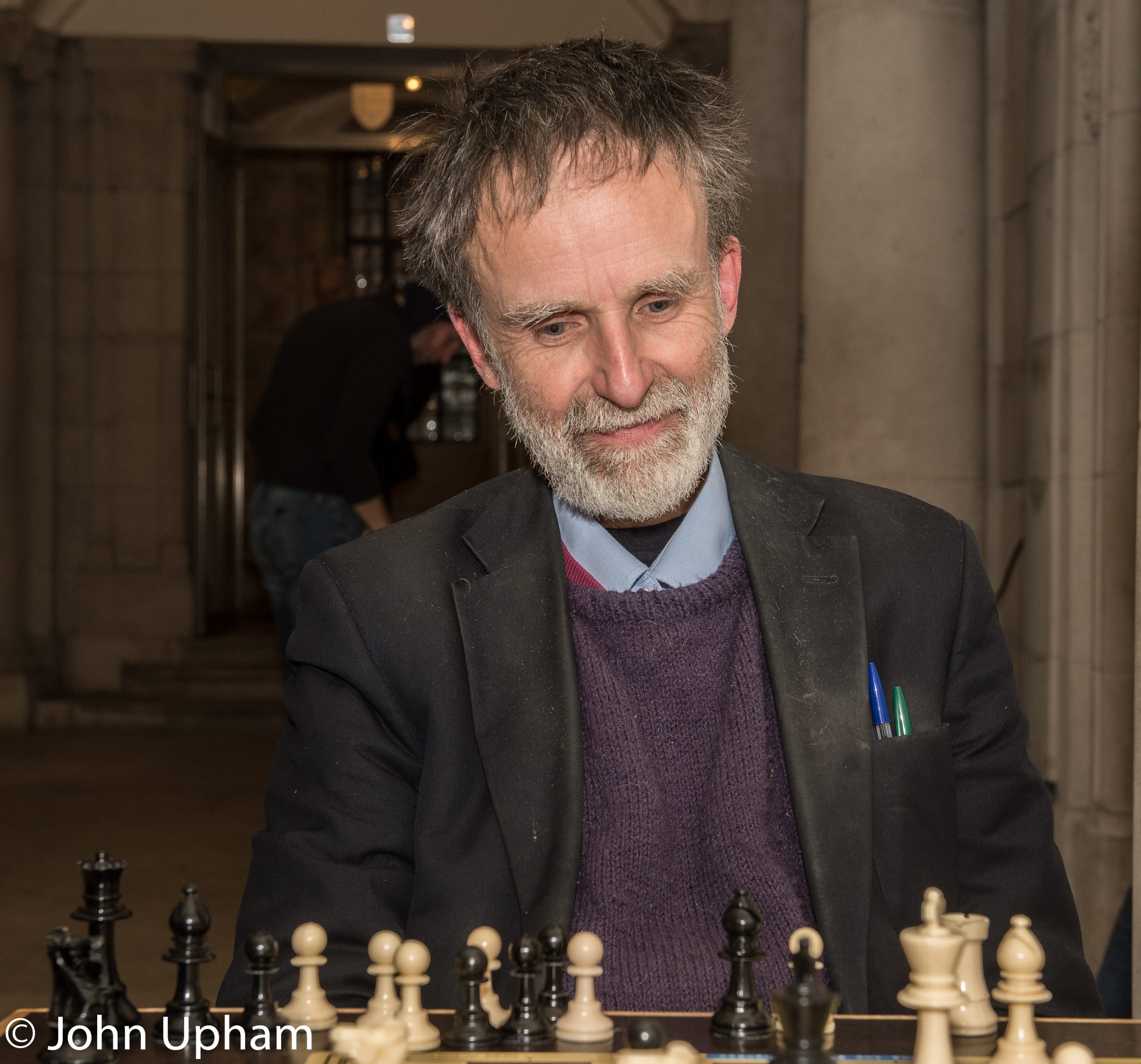
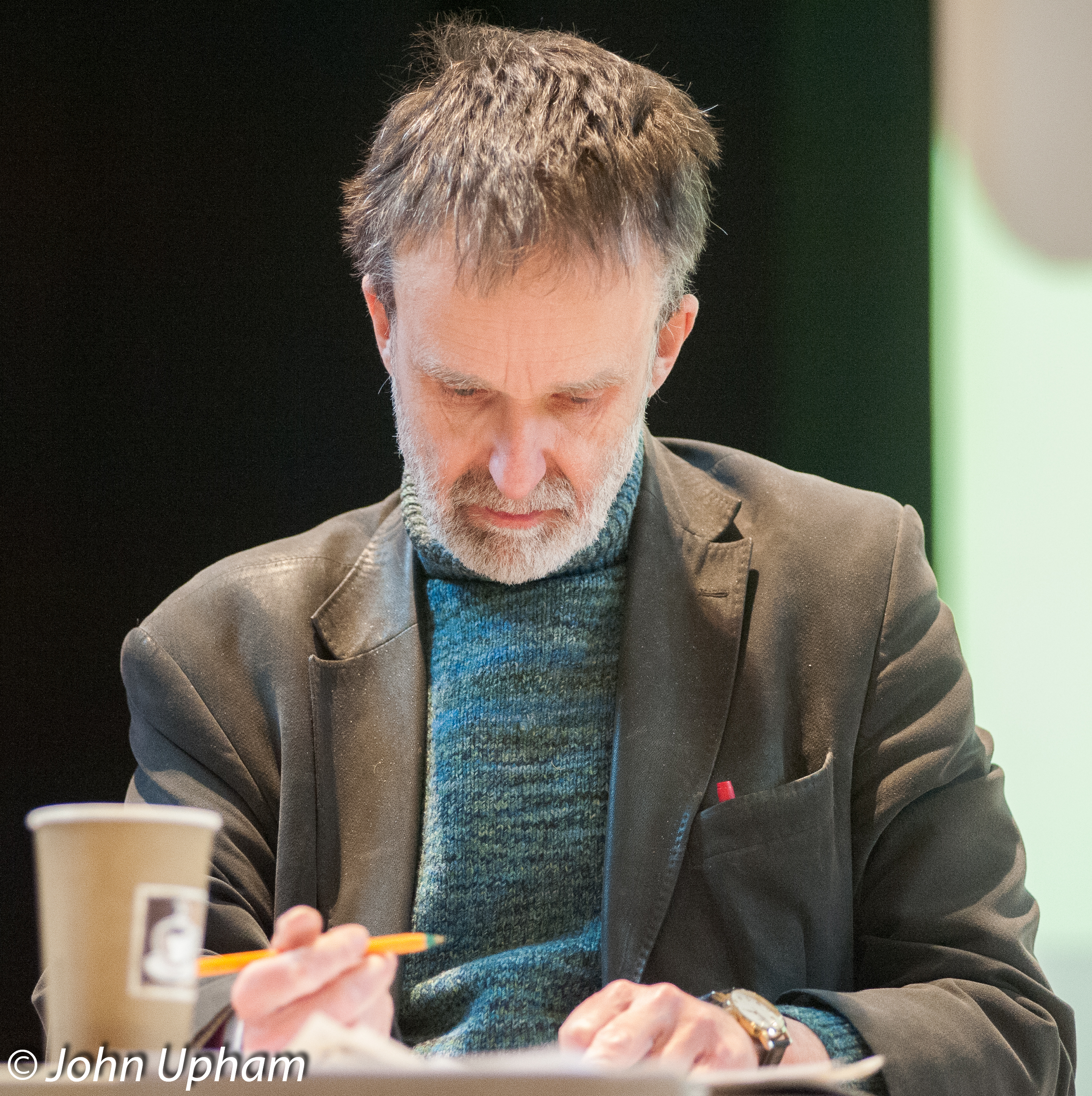
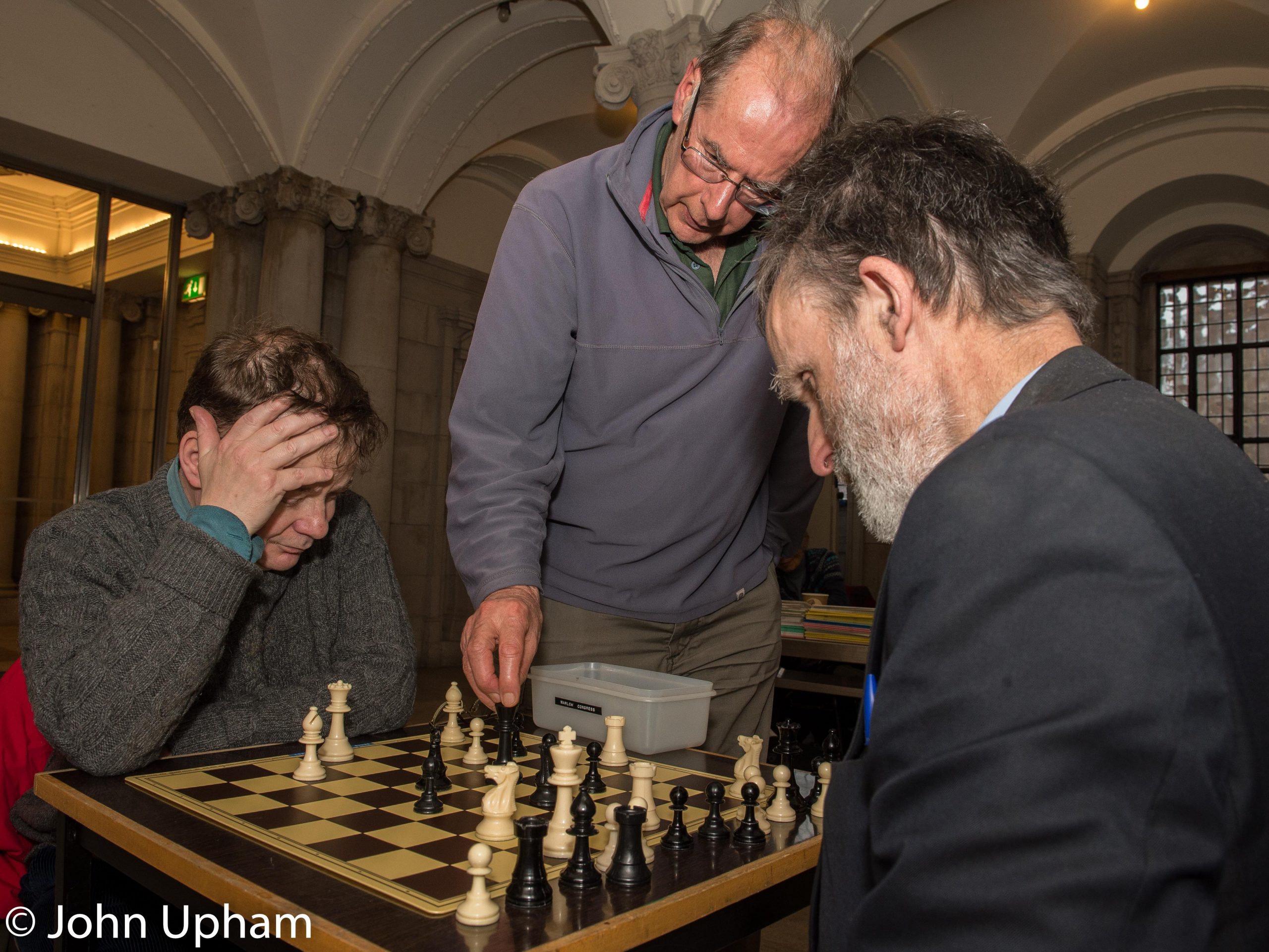
Death Anniversary of Timothy George Whitworth (31-vii-1932 17-iv-2019)
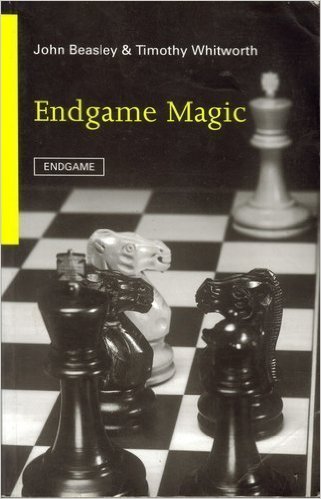
Here is an excellent article from Brian Stephenson
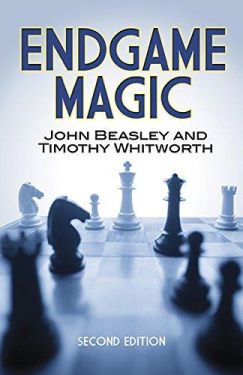
Here is an obituary from The Guardian
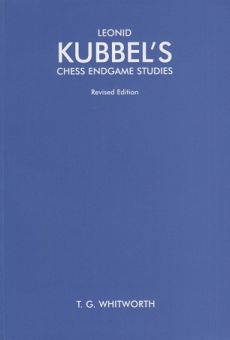
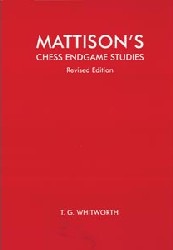
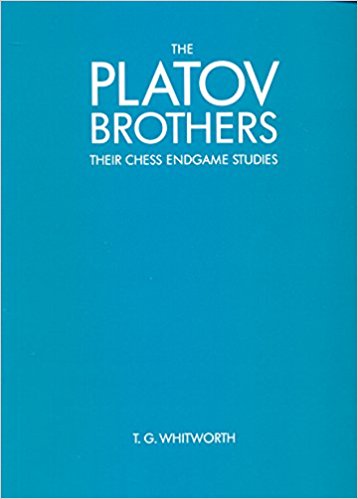
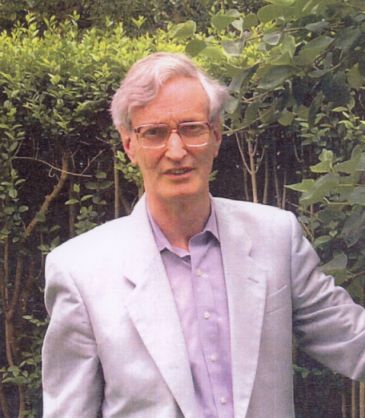
Death Anniversary of Timothy George Whitworth (31-vii-1932 17-iv-2019)

Here is an excellent article from Brian Stephenson

Here is an obituary from The Guardian



